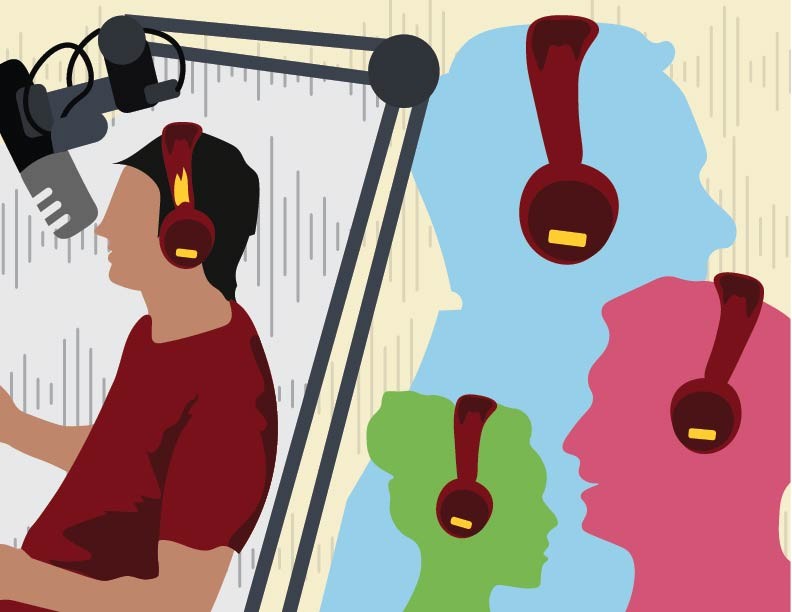There was a moment in recording the Department of Surgery’s podcast when tears filled producer Amanda Brower’s eyes.
Dr. Raja Kandaswamy was describing performing a pancreas transplant on a 12-year-old diabetic girl — the youngest recipient in nearly 25 years.
It’s a story so filled with emotion, a listener might tear up too. In fact, said Brower, that’s the point.
“There’s something to be said for hearing versus just reading,” she said. “Podcasts give you that opportunity to really show that emotion.”
University of Minnesota faculty and staff are embracing podcasting as a way to promote their work and stay ahead of changes in communication. Their goals are diverse, but the rationale is the same: podcasts are accessible, popular and provide an emotional connection to otherwise faceless academic departments.
When the Department of Plant Pathology launched its podcast “Breaking Protocol,” the purpose was clear: in a political climate that devalues facts and expertise, scientists need to be front and center, said department head Jim Bradeen.
“As scientists, we’re in a unique position to actually interact and defend our science,” Bradeen said. The podcast offers faculty a chance to promote their research and gives a needed publicity boost to a specialized corner of science. “A lot of people don’t realize that plants get sick too.”
Bradeen said his department’s podcast is aimed at younger listeners who are interested in science. It’s also good for recruitment. “The fact that we’re doing this really catches the attention of graduate students, for example, because we look current and relevant,” he said.
In addition to demonstrating relevance, podcasting is attractive because initial costs are low, said Radio K Program Director Sarah Lemanczyk, who teaches podcasting classes at the Hubbard School of Journalism and Mass Communication.
“You can get your message out there with very little overhead,” she said. “[But] at this point in the medium, it’s getting recognized, cutting through the noise, that becomes trickier.”
Some University members distinguish their podcast by creating very specific content for a very specific audience.
Are you a farmer who wants to listen to the latest in livestock manure management from behind the wheel of your tractor? The Swine Extension podcast might be for you, said Swine Extension educator Sarah Schieck.
Schieck said she took a cue from other Extension educators that started podcasts before her. The Extension catalog is vast and niche, including nutrient management, crop pests and youth development.
“The overall mission of Extension is to bring research-based info to industry,” she said. “Podcasts are just another avenue.”
Another reason educators are turning to podcasts is their growth in popularity. Seventeen percent of Americans listened to podcasts weekly in 2018, compared to 7 percent in 2013, according to the Pew Research Center.
For all its uses, Lemanczyk said the medium of audio is best lent to storytelling. She said audio is built on intimacy.
The Department of Surgery’s “Scrubs, Scalpels and Stories” podcast began its life as a way to keep the department’s 800 alumni up to date with new developments in their field. But it quickly drew an audience outside of the Medical School.
“We pitched it as a thing surgeons would like. Behind the scenes, the whole time, we were considering the broader audience,” said host David Korostyshevsky. “The scrubs and scalpels signify the surgery part, but we’re after that story that’s behind it that makes it important.”
Korostyshevsky takes his listeners to the work and issues at the cutting edge of medicine, like how research on hibernating bears is helping scientists prevent people in comatose from losing muscle mass.
Korostyshevsky said the podcast’s caliber lies in the universal appeal of well-told human stories.
“Everybody has a deeper reason than just going to work,” he said. “The story is already there.”
Correction: A previous version of the article misspelled Sarah Schieck’s last name. Her last name is Schieck.








